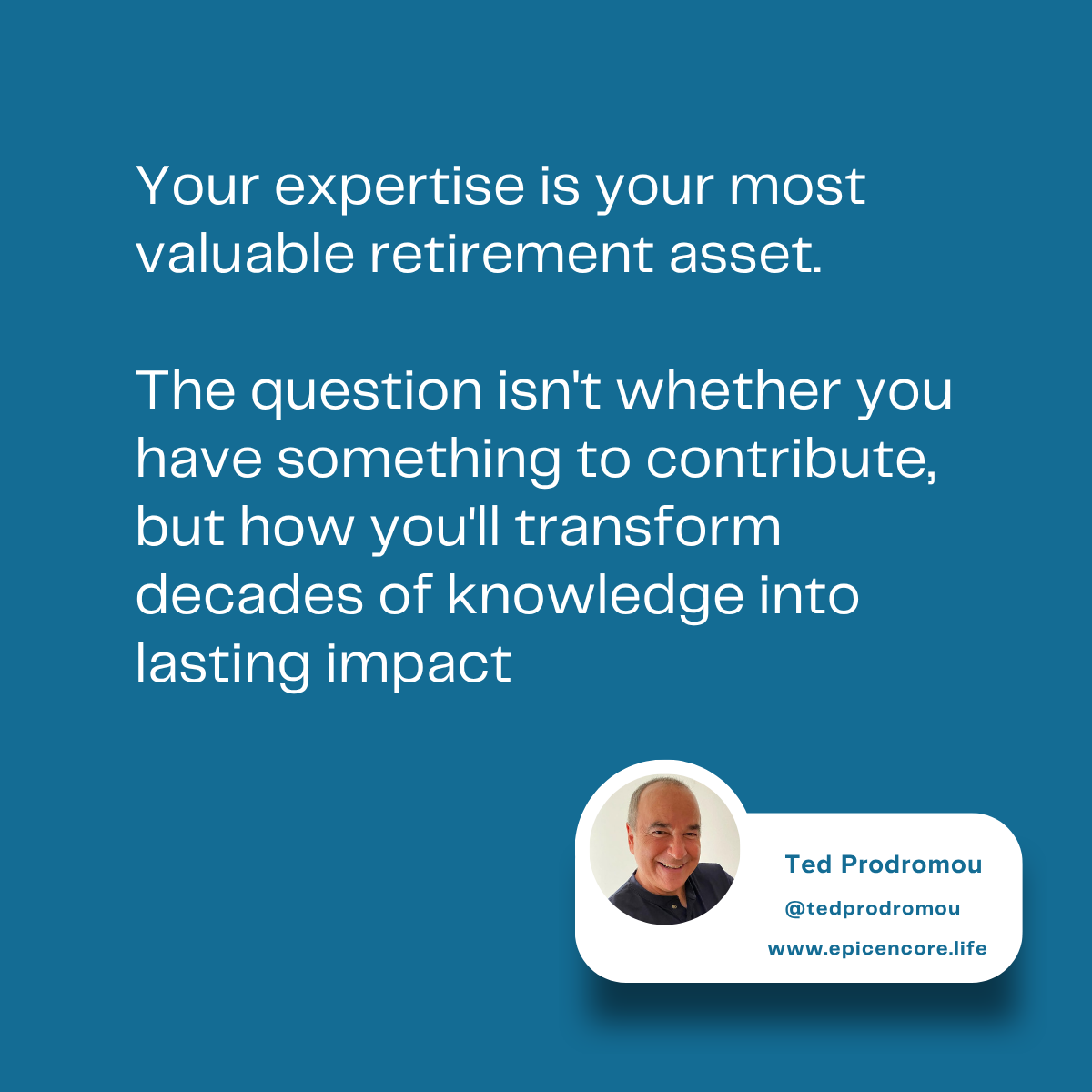
After decades in the C-suite, most executives underestimate their most valuable retirement resource: their accumulated expertise.
While financial planners focus on portfolio management, the real question isn't how to manage your money; it's how to transform your knowledge into lasting impact.
There's a natural evolution that happens when executives leave corporate life, a shift from building resume virtues that advance careers to developing eulogy virtues that define how we're remembered.
The transition from corporate life presents a unique opportunity to move from accumulating achievements to creating enduring value.
The Five Dimensions of Executive Legacy
Your post-corporate legacy extends across multiple dimensions, each offering different paths to purpose:
Knowledge Legacy involves packaging decades of expertise into accessible formats.
This isn't about writing dense technical documentation; it's about creating "decision stories" that translate your experience into actionable insights others can apply.
Relationship Legacy multiplies your impact through strategic mentoring and sponsorship.
These generative relationships create benefits that flow both ways; mentees gain wisdom and opportunities, while mentors experience the deep satisfaction of shaping future leaders.
The ripple effects extend far beyond direct involvement.
Values Legacy transmits principles through action, not words.
Your values become tangible when embedded in organizations, initiatives, or frameworks you create.
Creative Legacy produces tangible outputs, books, courses, businesses, or innovations that outlast your direct involvement.
Community Legacy addresses societal challenges by aligning your expertise with causes that matter.
Designing Your Legacy Intentionally
Creating a meaningful legacy requires the same strategic thinking you applied to corporate initiatives.
Start by clarifying your legacy vision.
How do you want to be remembered?
Next, identify specific vehicles for creating impact: mentoring programs, nonprofit leadership, knowledge products, or social ventures.
Your most meaningful legacy emerges where three things meet: causes you care about, expertise only you can offer, and real needs nobody else is filling.
Consider this: You've spent decades learning things the hard way, developing judgment that only comes from experience, and recovering from mistakes that taught invaluable lessons.
That wisdom becomes worthless if it retires with you.
Your legacy isn't what you leave behind.
It's what you actively create through intentional choices and strategic action.
The question isn't whether you have something valuable to contribute.
The question is: How will you package and share it so its impact outlasts you?
Ted
P.S. If you enjoy this content, follow me on my new Substack channel for exclusive content, including live interviews with thought leaders

